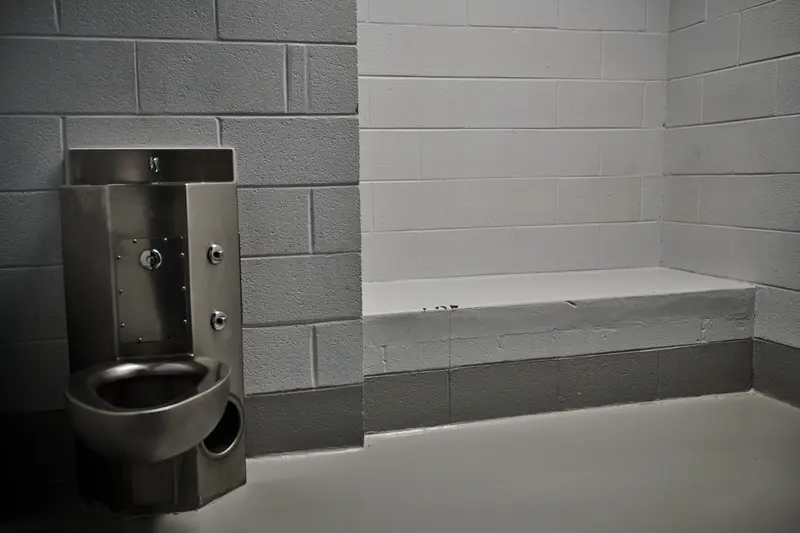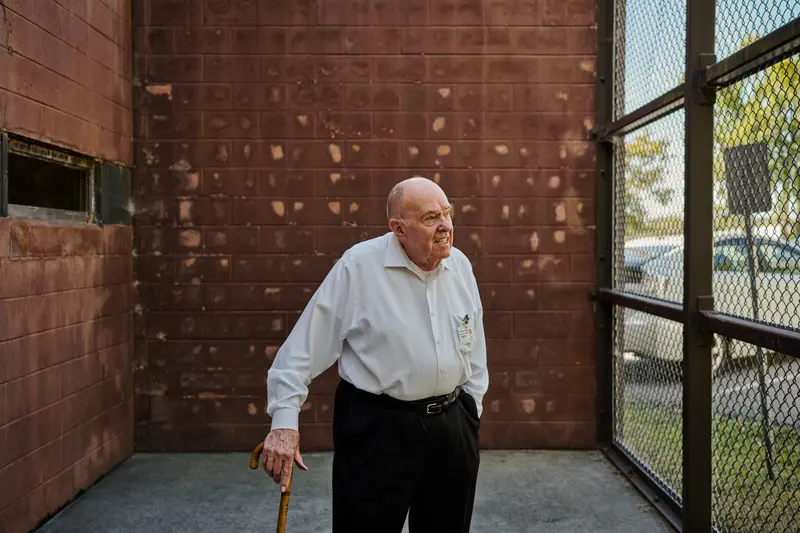This article was produced for ProPublica’s Local Reporting Network in partnership with WPLN/Nashville Public Radio. Sign up for Dispatches to get stories like this one as soon as they are published.
To hear the state of Tennessee tell it, Knoxville’s Richard L. Bean Juvenile Service Center has shown “significant and consistent improvement.” It no longer illegally locks kids up alone in cells, as an investigation by ProPublica and WPLN exposed last month.
But a closer look at the facility’s most recent inspection by the state Department of Children’s Services tells a different story. Instead of secluding children against their will, the facility claims that kids are voluntarily agreeing to be locked up alone. In the first three months of 2023, the facility used this “voluntary” seclusion more than 1,000 times — even though there were usually only about 30 kids staying there. That’s three times as many incidents as a similar period the year before.
Tennessee law closely regulates the conditions under which kids can be locked up alone, against their will in juvenile detention centers. But a 2021 state law permits facilities to isolate children if the child requests a cooling-down period. To be considered truly voluntary under the law, kids have to be able to leave whenever they want.
Zoe Jamail, policy coordinator of Disability Rights Tennessee, says it looks like the facility is classifying the lockups as voluntary to get around the law. Her organization acts as a monitoring agency for juvenile detention facilities in the state.
“One of the effects of calling this voluntary is that you then no longer have to comply with any of the parameters that the state has put around seclusion,” she says.
Both inspections by DCS and reports from detained youth also suggest the seclusions are not truly voluntary.
In 2021, after the new law took effect, a DCS inspector visited the center. She documented that the facility’s reliance on these voluntary seclusions was on the rise, and that it was “unclear” if the youth knew they could leave their cell by choice.
“You can’t come in and out — like, the door’s locked,” says one teenager that we’re referring to by his middle name, Tyler, to protect his privacy as a minor.

Credit:
William DeShazer for ProPublica
Tyler spent months at the Bean Center this year. He says a “voluntary lockup” meant at minimum two hours in his own cell before a guard would let him out. And if he asked to get out sooner?
“They’d get mad. They’d be like, ‘You can’t do that.’”
Tyler says he and other kids would request a voluntary lockup to sleep more or get out of class.
But this summer, he says Bean started cracking down on that by sending them to another cellblock called brown pod for even longer than they wanted.
“Bean made it where they move you to brown and you’re in there for like the whole day,” Tyler says. “People who would ask to go on lock up would still be locked up for like two or three days before they’d come back.”
Another teen who we’re calling by his middle name, Francisco, says he was locked up for a day after asking for a brief voluntary lockup.
The way he remembers it: “Mr. Bean decided that he was mad that everybody was taking voluntaries because school wasn’t happening. He just was like: ‘All right, then everybody’s going to brown for a day. And if you don’t go to school no more, you go to brown for the whole day, to the next day.’”
Bean admitted to that policy during our interview in September.
“So what I started doing is put them in seclusion until the next morning, and then they want to go to school,” Bean said then. “And so that’s working pretty good.”

Credit:
William DeShazer for ProPublica
Bean and the county board that oversees the center didn’t respond to requests for comment. They haven’t responded since we ran our story last month, which found that the center was locking kids up in seclusion more than other facilities in the state — often as punishment and for longer than the law allowed.
In a statement, DCS said it wants to “ensure that this facility, and any juvenile detention center, has an appropriate policy in place that requires the facility to notify a youth choosing to enter voluntary seclusion that the youth may terminate the voluntary seclusion at will.”
The department says if a kid can’t end the lockup at will, then it no longer qualifies as voluntary. And if it doesn’t, then Bean’s reliance on illegally locking kids up alone has only increased.


